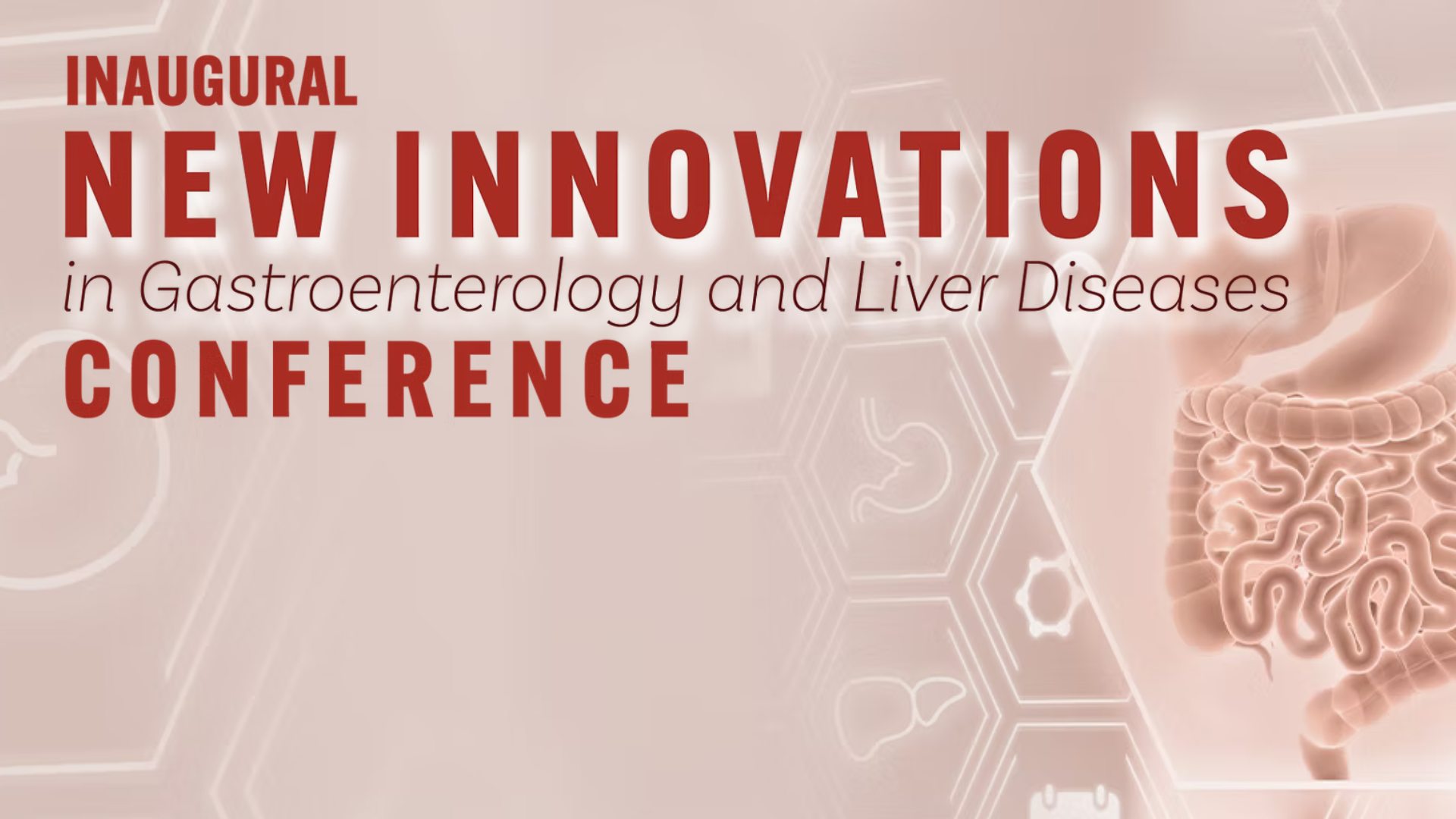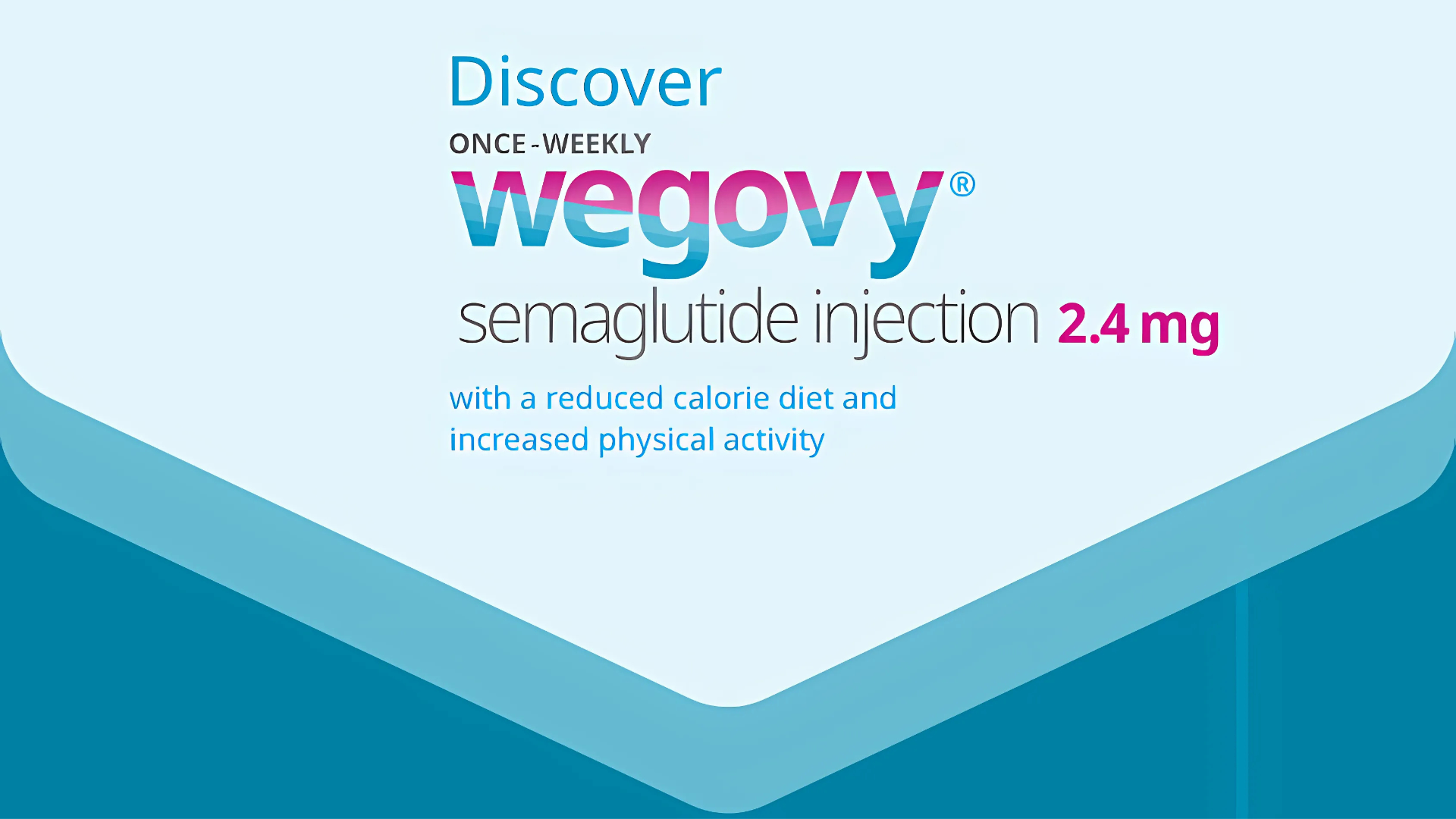
Allysa Saggese
NP
Location : New York, NY, USA
BIO
Allysa Saggese is a graduate of Columbia University School of Nursing with a Master's Degree in Nursing. She is board certified with the ANCC as an Adult-Gerontology Primary Care Nurse Practitioner. She has worked in Hepatology, Liver Transplantation and Hepatology Research at Weill Cornell Medicine since 2018. Her main interests include Steatotic Liver Disease, Primary Biliary Cholangitis and cirrhotic liver disease, as well as the spectrum of research within hepatology.
MASLD-MASH Content Featuring Allysa
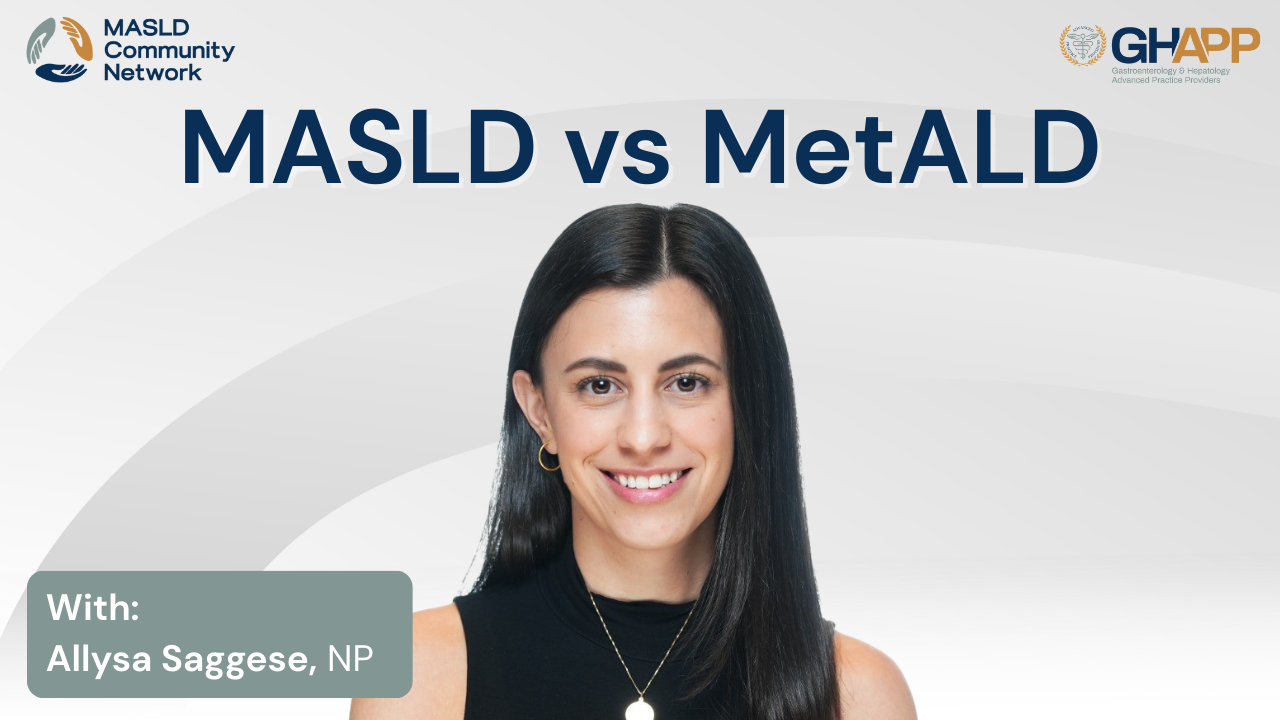
MASLD vs MetALD With Allysa Saggese

In this MASLD Community Network session, Allysa Saggese, NP, from Weill Cornell Medicine, New York, walks through a real-world case to demystify the overlap between MASLD, MASH, and metabolic-alcohol related liver disease (MetALD). You’ll learn how to take a precise alcohol history, translate “standard drink” equivalents (≈14 g ethanol), and use objective biomarkers like PEth alongside FIB-4, FibroScan (kPa), ELF, CAP, and MRI elastography to stage disease accurately and catch discordant results. Allysa covers how alcohol can skew labs (ALT/AST, triglycerides, BP), why reducing/abstaining may change non-invasive testing thresholds, when to consider liver biopsy, and who qualifies for HCC surveillance. She also outlines treatment pillars—lifestyle optimization, cardiometabolic risk control, and appropriate pharmacotherapy (including where resmetirom fits and when to avoid it)—so clinicians can tailor care for patients spanning pure MASLD to MetALD. Watch to sharpen your staging, counseling, and monitoring strategy—and help patients make data-driven changes that improve outcomes.
Watch Now
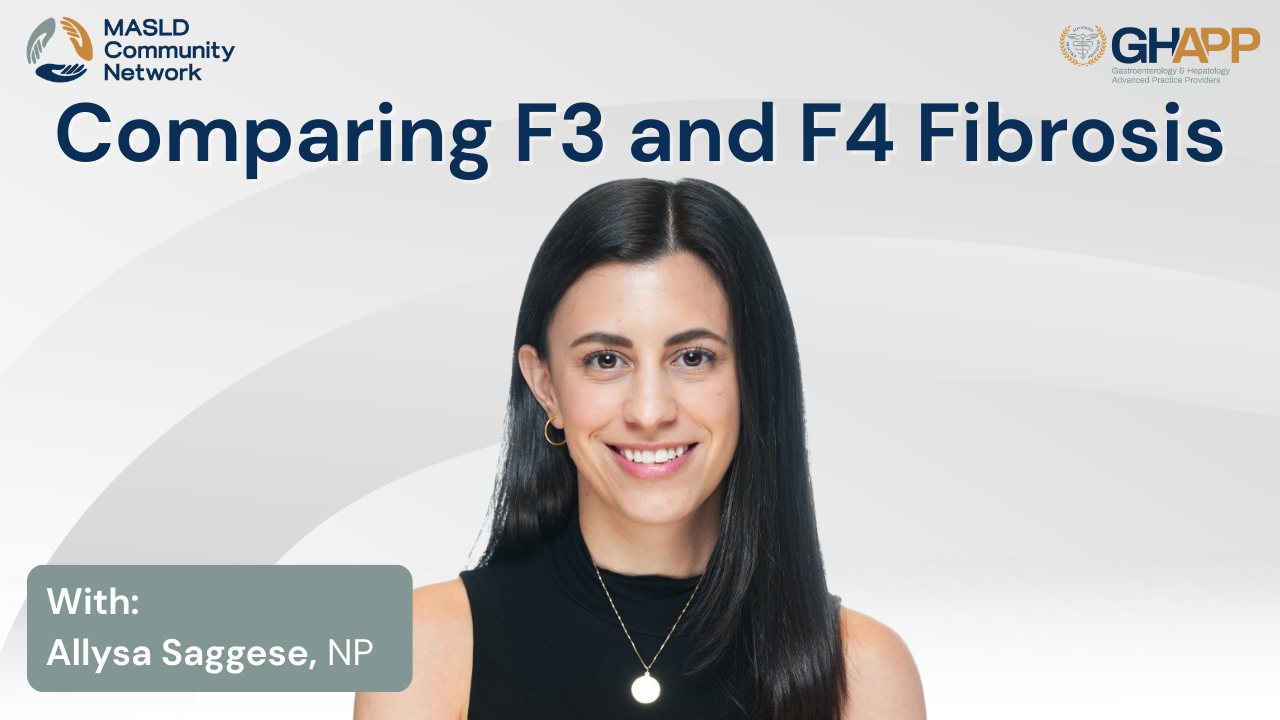
Comparing F3 and F4 Fibrosis With Allysa Saggese

In this session from the MASLD/MASH Community Network, Allysa Saggese, NP from Weill Cornell Medicine in New York, explores the critical differences between F3 and F4 fibrosis through two detailed case studies. Accurate staging is essential in fatty liver disease management, as it directly impacts treatment decisions, eligibility for FDA-approved therapies like resmetirom, and the need for hepatocellular carcinoma (HCC) surveillance. Allysa explains how non-invasive tests such as FIB-4, FibroScan, ELF, CAP, and MRI elastography compare, when to consider a liver biopsy, and how to interpret discordant results. She also discusses treatment pathways, the role of GLP-1 receptor agonists, lifestyle modification, and monitoring strategies for patients with advanced fibrosis versus cirrhosis. This practical overview provides clinicians with a clear framework to distinguish between F3 and F4, ensuring patients receive timely interventions, surveillance, and education to improve long-term outcomes in MASLD/MASH.
Watch Now
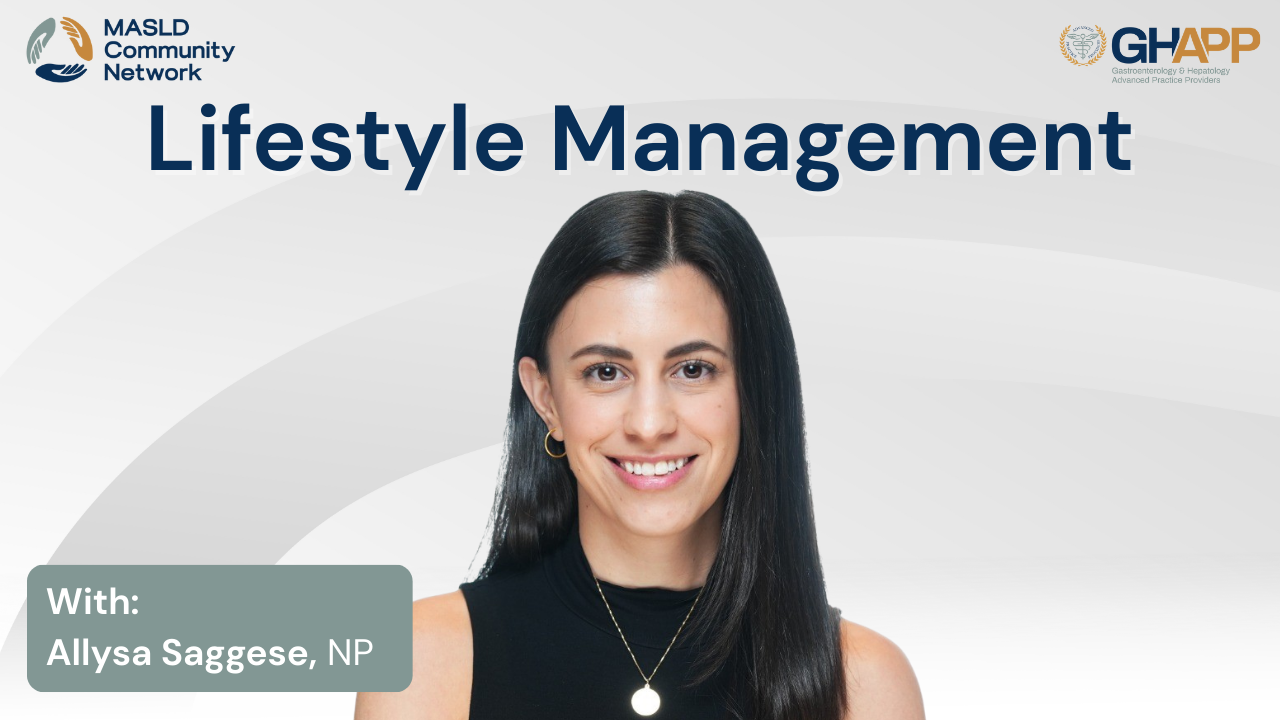
Lifestyle Management With Allysa Saggese

Join Allysa Saggese, NP, from Weill Cornell Medicine in New York City, for an insightful and practical discussion on lifestyle management for MASLD and MASH, presented through the GHAPP MASLD/MASH Community Network, sponsored by Madrigal Pharmaceuticals. In this case-based presentation, Allysa walks viewers through the non-pharmacologic strategies used to manage Metabolic Dysfunction-Associated Steatotic Liver Disease (MASLD), highlighting the role of nutrition, physical activity, and patient-centered counseling. Using a real-world example of a 65-year-old patient with obesity, diabetes, and steatosis, Allysa demonstrates how to assess fibrosis risk through non-invasive testing like FIB-4 and FibroScan, and explains how lifestyle modifications remain central to slowing disease progression—even in the era of advanced therapeutics. The session explores the importance of motivational interviewing, cultural dietary preferences, and how to structure effective, individualized conversations around reducing sugar intake, increasing movement at home, and achieving sustainable 5–10% weight loss to improve liver histology. Allysa also breaks down the metabolic interplay between central adiposity, insulin resistance, and liver inflammation, and shares counseling tips to build patient trust and long-term engagement. Whether you're a GI or hepatology provider, this session delivers real-world guidance to help empower patients to reverse early liver damage through everyday lifestyle changes.
Watch Now

Management of Life Style Modification

This video focuses on the comprehensive management of patients with metabolic-associated steatohepatitis (MASH), emphasizing lifestyle modifications, dietary adjustments, and exercise strategies. Key topics include the importance of addressing risk factors like diet, exercise habits, and alcohol intake, as well as referrals to medically supervised weight loss clinics or bariatric surgery for advanced cases. The speaker highlights the benefits of the Mediterranean diet, intermittent fasting, and avoiding ultra-processed foods while discussing the role of resistance training to combat sarcopenia and maintain muscle mass. Practical advice and tailored recommendations ensure a holistic approach to managing MASH and improving patient outcomes.
Watch Now

Third Step of Life Style Management

This video provides a comprehensive overview of emerging pharmacologic treatments for metabolic-associated steatohepatitis (MASH) and their tailored applications based on patient profiles. Topics include FDA-approved therapies, drugs in advanced clinical trials (such as semaglutide and lanifibranor), and the potential for combination treatments targeting both steatohepatitis and fibrosis. The speaker emphasizes the importance of patient-specific approaches considering metabolic profiles, obesity, and diabetes status, alongside lifestyle interventions. Additionally, the video discusses the evolving interdisciplinary care model and highlights the exciting progress in non-invasive testing and treatment advancements for F2-F3 fibrosis.
Watch Now

Approved Medication for MASH/NASH

This video provides detailed guidance on selecting and monitoring patients for emerging therapies targeting advanced fibrosis (F2-F3) in NASH. Key topics include contraindications for patients with cirrhosis, considerations for concomitant medications, and dose adjustments for statins. The video outlines ideal candidates based on specific thresholds for VCTE, MRE, ELF scores, and other non-invasive tests while emphasizing the importance of ruling out portal hypertension and other liver diseases. It also reviews a stepwise monitoring approach, focusing on tolerability at three months and efficacy assessments at six and twelve months, with an emphasis on histologic and non-invasive test improvements.
Watch Now

Types of Diet for the Treatment of MASLD

This video explores comprehensive strategies for managing metabolic-associated steatohepatitis (MASH), focusing on fibrosis risk stratification, lifestyle modifications, and pharmacologic interventions. Learn about dietary recommendations like the Mediterranean diet, exercise guidelines emphasizing resistance training, and the role of intermittent fasting and processed food avoidance. The video also highlights weight loss targets, diabetes management, and emerging therapies such as GLP-1 receptor agonists and bariatric surgery, all aimed at improving liver health and patient outcomes.
Watch Now

NITs to Identify High Risk MASH Patients

Explore advancements in non-invasive diagnostics and risk stratification for liver fibrosis and MASH. This video highlights tools like FIB-4, transient elastography, and innovative scoring systems (e.g., FAST and Agile) to identify and predict outcomes for high-risk patients. Learn about serum biomarkers, updated guidelines, and the role of lifestyle interventions alongside targeted therapies for managing metabolic risks and advancing care in hepatology.
Watch Now





